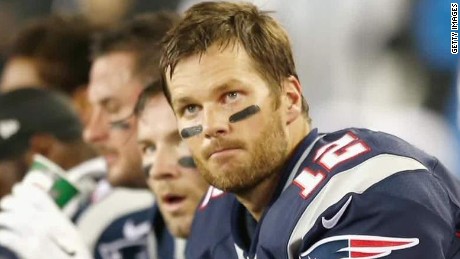Story highlights
- Lawyer Ted Wells said he was not pressured by the NFL in investigating New England Patriots
- Wells said quarterback Tom Brady answered questions but would not give access to his electronic communications
(CNN)Lawyer Ted Wells fired back Tuesday at critics of the way he conducted the "Deflategate" investigation of the New England Patriots.
In a conference call with journalists, Wells said he was not pressured by the NFL to conclude "it is more probable than not" quarterback Tom Brady knew underinflated footballs were used in the January AFC playoff game against the Indianapolis Colts.
"The conclusions in the report represent the independent opinions of me personally and my team. And those conclusions were not influenced in any way, shape or form by anyone at the league office," he said.
Wells had harsh words for Brady agent Don Yee, who challenged the integrity of the investigation, noting that "the league is a significant client of the investigators' law firm."
Wells said: "But for those personal attacks, I will be candid with you, I would not have responded, but I think those attacks are out of bounds and unfair and just plain wrong."
The investigation found that "it is more probable than not" that Brady was "at least generally aware of the inappropriate activities" of locker room attendant Jim McNally and equipment assistant John Jastremski. Jastremski has been with the team for 14 years, the past three as the staffer in charge of preparation of the game-day footballs.
The NFL on Monday suspended Brady four games without pay and fined the team $1 million. The Super Bowl champs will forfeit its first-round selection in the 2016 NFL Draft and fourth-round pick in the 2017 draft. The team has appealed.
Wells said Tuesday that the Patriots cooperated with his investigation except in two ways.
He wanted to do a second interview with McNally, but the team refused to allow it.
Wells said Brady was "totally cooperative" during an interview but would not give Wells access to his electronic messages.
"Most of the key evidence in this case, as in most cases, come from people's cell phones, and he refused to let us review the phones," Wells said.
Wells said Yee was wrong in saying the investigation was a "sting operation" that began when the Colts intercepted a Brady pass in the first half of the AFC championship game and noted the ball was not inflated to league-mandated pressure.
Wells said "nobody took it seriously" at first. "That's why I come out and say this was not a sting operation. It was, in fact, just the opposite. They [the NFL] gave the Patriots the benefit of the doubt. They did not overreact."
When asked why he used the phrase "more probable than not" throughout the report, Wells said it paralleled the phrase "preponderance of evidence" used in civil trials.
"'I believe the conclusions have been proven by the preponderance of the evidence standard," he said. "I used the words 'more probable than not' because that is what is in the rules, because I thought it was appropriate when people read my report to always make sure that they understood the burden of proof that I was following."

























